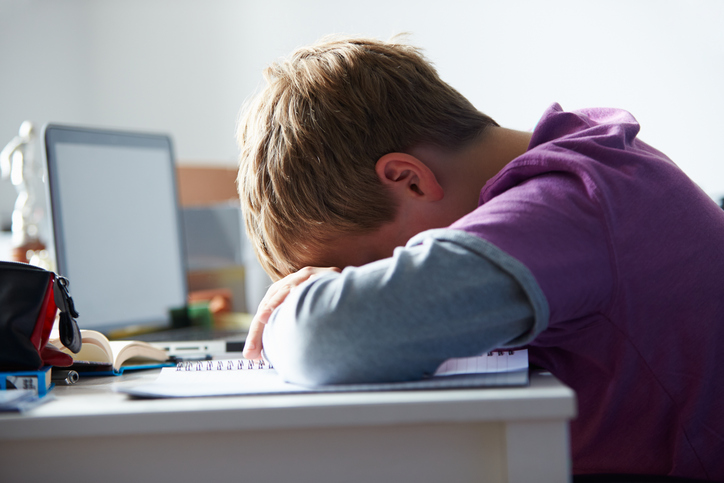Depression is a disease of loneliness.
Not only is it lonely for the person suffering from depression who withdrawals from the world and retreats into themselves, it is lonely for the people who love them, support them and want to stay connected to them. If you are the parent of a depressed child, this means going through something that no one else will ever fully understand. It means raising someone that you recognize one day and is a completely different, mysterious, person the next. It means battling against a disease that is elusive and resists explanation.
SPOILER ALERT: This blog will offer no concrete answers to how one parents a depressed child but instead seeks to assure those who do that they are not alone in their frustration, uncertainty or loneliness and that their struggles are all valid.
Tweendom recently posted a good piece about depression in kids that detailed the symptoms and potential treatments including anti-depressants and therapy. Please refer to it in assessing your own child and be sure to get professional help. Once your child has been diagnosed, reality sets in and the question arises; how does one parent day to day for a child who feels life’s struggles in such a different, intense and unpredictable way?
In fifth grade my daughter probably missed 30 days of school. One if not more mornings a week became an unwinnable struggle and she simply would not go. She fought me, she pleaded, she hid, she stayed in bed and I felt like a huge, dumb failure. Why couldn’t I get my kid to do what everyone else’s kids were doing? To compound things, I had other parents tell me to just kick her out the door, put her on the school bus and be done with it. It shouldn’t be that difficult.
Or should it?
The stigma of depression runs deep and we think the answers should be direct and easy; everyone else’s kid does X, why can’t mine? Such is the enigma of depression. No one can understand your struggle. I have learned that people who deal with depression change their expectations for life. For some that might mean their child is able to get out of bed and have a meaningful day, for others it simply means that their child wakes up alive. It was an extremely humbling experience to sit in a support group for parents of depressed children, share my frustrations about my daughter being withdrawn and missing so much school and then listen to a mother whose child lived on Reese’s peanut butter cups for a year because it was the only thing preventing him from slowly starving himself to death. It was heartbreaking to hear and my troubles suddenly felt petty and insignificant in comparison.
I’ve spoken with parents who have survived multiple suicide attempts, who had their child hospitalized and often went to bed wondering if they would see them in the morning. The last thing they are worried about is what another parent thinks of them or what a school expects or how a teacher perceives their child. They fight a solitary battle against depression every moment of their lives.
When my daughter was diagnosed with depression, I wanted to cure it. I wanted to find a doctor or a therapist who could look at her, figure out what was wrong and fix it. I wanted to fix it. I am her father after all; I should know what do for her. The sense of failure, isolation, frustration and loneliness grew until I discovered others going through similar experiences. It was a revelation to hear that I wasn’t alone. That other people actually have these battles too and that they are perpetually scared to death that their child will fail out of life or worse.
It was through this outpouring of experiences that I was able to shift my own personal guilt and shame into something more productive. It didn’t feel as personal and I recognized that my daughter’s depression didn’t have to reflect on me as a human being. The other thing that helped me shift was a quote from the book Rescuing Your Teenager From Depression by Norman T. Berlinger:
“Most of all, a parent owns the crucial ingredient of the prescription against depression – love. There is new and compelling scientific evidence that parents are a vast and invaluable resource in their children’s fight against several emotional illnesses, including depression. The misfortune is that this plain fact has not been realized sooner.”
I keep that quote on hand in my phone. On difficult days when I can’t reach my daughter, when she refuses to participate in the world and I start to internalize her struggles as my failures, I read it and shift my perspective back to what is important.
We are still in the thick of the process. My daughter is on anti-depressants, something I initially resisted, but her response has been incredibly positive. She has also seen a therapist and has regular checkups with her psychiatrist. She is doing better than she was a few months ago but still has her hard days when the world just doesn’t feel worth getting out of bed for. On those days I try to remember that all my own feelings are mine to handle and that she just needs to feel supported until she can make it to a better day.
